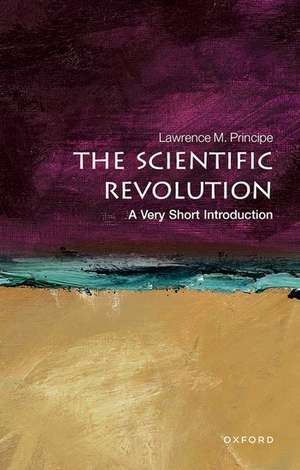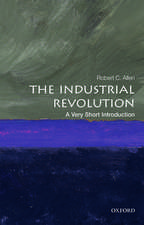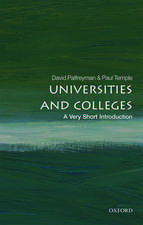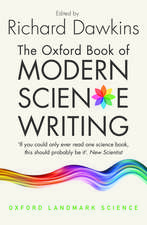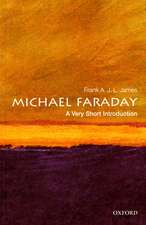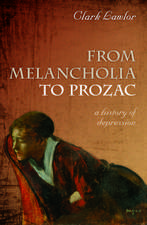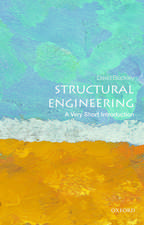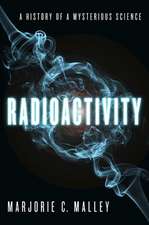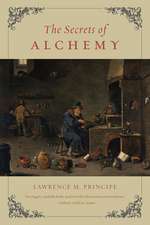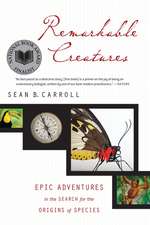The Scientific Revolution: A Very Short Introduction: Very Short Introductions
Autor Lawrence M. Principeen Limba Engleză Paperback – 28 apr 2011
Din seria Very Short Introductions
-
 Preț: 47.44 lei
Preț: 47.44 lei -
 Preț: 47.01 lei
Preț: 47.01 lei -
 Preț: 41.42 lei
Preț: 41.42 lei -
 Preț: 46.09 lei
Preț: 46.09 lei - 5%
 Preț: 56.93 lei
Preț: 56.93 lei -
 Preț: 56.45 lei
Preț: 56.45 lei -
 Preț: 56.70 lei
Preț: 56.70 lei -
 Preț: 46.72 lei
Preț: 46.72 lei - 17%
 Preț: 51.73 lei
Preț: 51.73 lei - 18%
 Preț: 51.45 lei
Preț: 51.45 lei - 18%
 Preț: 51.54 lei
Preț: 51.54 lei - 17%
 Preț: 51.82 lei
Preț: 51.82 lei - 17%
 Preț: 52.08 lei
Preț: 52.08 lei - 17%
 Preț: 51.63 lei
Preț: 51.63 lei - 17%
 Preț: 52.16 lei
Preț: 52.16 lei - 17%
 Preț: 52.11 lei
Preț: 52.11 lei - 17%
 Preț: 51.73 lei
Preț: 51.73 lei - 18%
 Preț: 51.45 lei
Preț: 51.45 lei - 17%
 Preț: 52.26 lei
Preț: 52.26 lei - 17%
 Preț: 51.91 lei
Preț: 51.91 lei - 17%
 Preț: 51.73 lei
Preț: 51.73 lei - 18%
 Preț: 50.75 lei
Preț: 50.75 lei - 17%
 Preț: 51.82 lei
Preț: 51.82 lei - 18%
 Preț: 51.19 lei
Preț: 51.19 lei - 17%
 Preț: 51.63 lei
Preț: 51.63 lei - 30%
 Preț: 43.88 lei
Preț: 43.88 lei - 17%
 Preț: 51.63 lei
Preț: 51.63 lei -
 Preț: 67.80 lei
Preț: 67.80 lei - 17%
 Preț: 51.63 lei
Preț: 51.63 lei - 17%
 Preț: 51.91 lei
Preț: 51.91 lei - 17%
 Preț: 51.63 lei
Preț: 51.63 lei - 17%
 Preț: 51.82 lei
Preț: 51.82 lei - 17%
 Preț: 51.73 lei
Preț: 51.73 lei - 18%
 Preț: 51.28 lei
Preț: 51.28 lei - 17%
 Preț: 51.63 lei
Preț: 51.63 lei - 17%
 Preț: 51.63 lei
Preț: 51.63 lei - 17%
 Preț: 52.16 lei
Preț: 52.16 lei - 18%
 Preț: 51.28 lei
Preț: 51.28 lei - 18%
 Preț: 51.00 lei
Preț: 51.00 lei - 17%
 Preț: 52.08 lei
Preț: 52.08 lei - 18%
 Preț: 51.00 lei
Preț: 51.00 lei - 17%
 Preț: 52.16 lei
Preț: 52.16 lei - 18%
 Preț: 51.45 lei
Preț: 51.45 lei - 17%
 Preț: 51.82 lei
Preț: 51.82 lei - 17%
 Preț: 52.16 lei
Preț: 52.16 lei - 17%
 Preț: 51.91 lei
Preț: 51.91 lei - 17%
 Preț: 52.08 lei
Preț: 52.08 lei - 17%
 Preț: 52.43 lei
Preț: 52.43 lei - 17%
 Preț: 52.26 lei
Preț: 52.26 lei - 17%
 Preț: 51.63 lei
Preț: 51.63 lei
Preț: 51.63 lei
Preț vechi: 62.56 lei
-17% Nou
9.88€ • 10.77$ • 8.33£
Carte disponibilă
Livrare economică 24-29 martie
Livrare express 19-25 martie pentru 26.50 lei
Specificații
ISBN-10: 0199567417
Pagini: 176
Ilustrații: 15 black and white halftones
Dimensiuni: 115 x 173 x 10 mm
Greutate: 0.14 kg
Editura: Oxford University Press
Colecția OUP Oxford
Seria Very Short Introductions
Locul publicării:Oxford, United Kingdom
Descriere
The sixteenth and seventeenth centuries witnessed such fervent investigations of the natural world that the period has been called the 'Scientific Revolution.' New ideas and discoveries not only redefined what human beings believed, knew, and could do, but also forced them to redefine themselves with respect to the strange new worlds revealed by ships and scalpels, telescopes and microscopes, experimentation and contemplation. Driven by religious devotion, by practical need, by the promise of fame and profit, or by the simple desire to know, a broad range of thinkers and workers explored and reconceptualized the world around them. Explanatory systems were made, discarded, and remade by some of the best-known names in the entire history of science - Copernicus, Galileo, Newton - and by many others less recognized but no less important. In this Very Short Introduction Lawrence M. Principe explores the exciting developments in the sciences of the stars (astronomy, astrology, and cosmology), the sciences of earth (geography, geology, hydraulics, pneumatics), the sciences of matter and motion (alchemy, chemistry, kinematics, physics), the sciences of life (medicine, anatomy, biology, zoology), and much more. The story is told from the perspective of the historical characters themselves, emphasizing their background,context, reasoning, and motivations, and dispelling well-worn myths about the history of science.ABOUT THE SERIES: The Very Short Introductions series from Oxford University Press contains hundreds of titles in almost every subject area. These pocket-sized books are the perfect way to get ahead in a new subject quickly. Our expert authors combine facts, analysis, perspective, new ideas, and enthusiasm to make interesting and challenging topics highly readable.
Notă biografică
Lawrence M. Principe's research interests focus on the history of science and technology in the late Medieval and early modern periods, with special attention to the history of alchemy/chemistry. He is the Drew Professor of the Humanities at John Hopkins University in the Department of History of Science and Technology and the Department of Chemistry. He has authored or edited ten books and published numerous papers.
